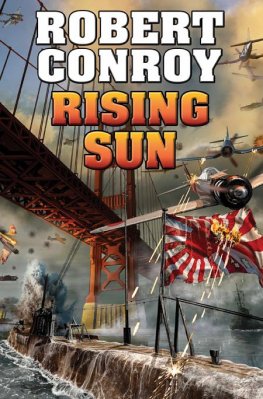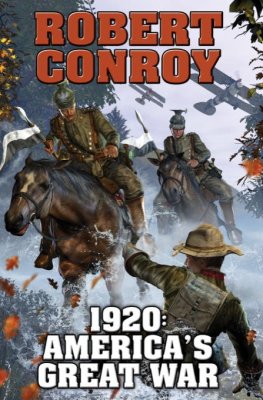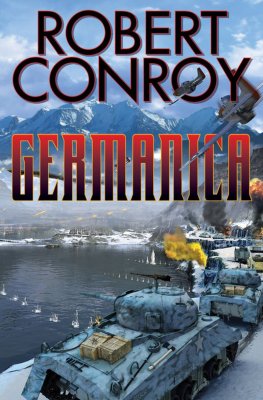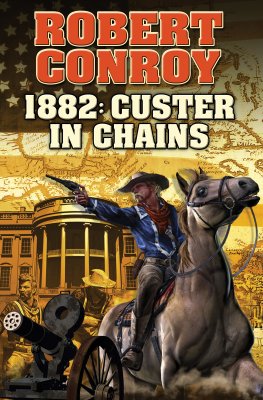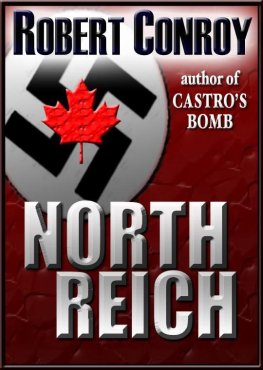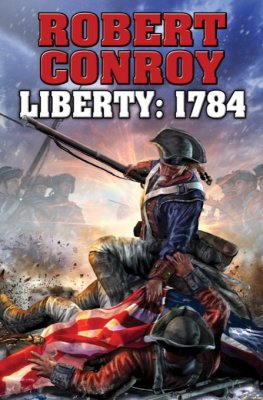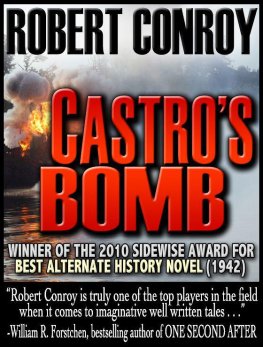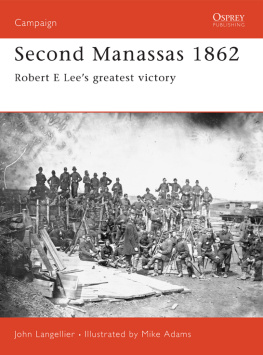Robert Conroy - 1862
Here you can read online Robert Conroy - 1862 full text of the book (entire story) in english for free. Download pdf and epub, get meaning, cover and reviews about this ebook. genre: Science fiction. Description of the work, (preface) as well as reviews are available. Best literature library LitArk.com created for fans of good reading and offers a wide selection of genres:
Romance novel
Science fiction
Adventure
Detective
Science
History
Home and family
Prose
Art
Politics
Computer
Non-fiction
Religion
Business
Children
Humor
Choose a favorite category and find really read worthwhile books. Enjoy immersion in the world of imagination, feel the emotions of the characters or learn something new for yourself, make an fascinating discovery.

- Book:1862
- Author:
- Genre:
- Rating:3 / 5
- Favourites:Add to favourites
- Your mark:
- 60
- 1
- 2
- 3
- 4
- 5
1862: summary, description and annotation
We offer to read an annotation, description, summary or preface (depends on what the author of the book "1862" wrote himself). If you haven't found the necessary information about the book — write in the comments, we will try to find it.
1862 — read online for free the complete book (whole text) full work
Below is the text of the book, divided by pages. System saving the place of the last page read, allows you to conveniently read the book "1862" online for free, without having to search again every time where you left off. Put a bookmark, and you can go to the page where you finished reading at any time.
Font size:
Interval:
Bookmark:
Robert Conroy
1862
Prologue
The captain and crew of the U.S. sloop of warSan Jacinto watched with grim intensity as the speck on the horizon grew larger with each thrust the warship made through the waves. It was theSan Jacinto's prey, the British mail packetTrent.
Locating the British ship on the vast ocean was a feat of seamanship combined with a great deal of luck. TheSan. Jacinto had first found theTrent in Cuba, and had to give her a head start when she had sailed lest she grow suspicious and turn back to the safety of the neutral Spanish port. With the knowledge that theTrent was headed for England, the American ship had steamed as fast as possible and then turned back along the usual track to Europe in hopes of finding theTrent coming towards her. The maneuver had worked.
The SanJacinto was going to stop theTrent and remove from her the two men who were on their way to England as emissaries of the Confederate States of America.
TheSan Jacinto was a steam-powered sloop and was more than a decade old. Although she was small in comparison with other modern warships, she was formidably armed for her size with one eleven-inch gun: ten nine-inch Dahlgren guns: and a twelve-pound Parrott rifle. TheTrent was unarmed.
Captain Charles Wilkes: U.S. Navy: watched eagerly as theSan Jacinto closed on the packet. When they were a mile apart theTrent raised the British flag and theSan Jacinto followed suit with the Stars and Stripes. It sometimes surprised landlubbers to find that ships at sea only flew their flags when identifying themselves or during battle. The wind would rip the expensive fabric to shreds if they flew them all the time.
The SanJacinto signaled theTreat to heave to. TheTrent declined. The stage was set.
Now, Mr. Fairfax, Wilkes ordered. A nine-inch gun fired with a sudden flash and roar, sending a solid shot across theTrent's bow where it raised a high splash in the sea. It was an abrupt and imperative second order for her to stop.
Soon they were alongside the British ship with their guns run out and ready for battle. Captain Moir of theTrent used a voice trumpet to tell the American ship that his government service vessel was in international waters and not subject to the laws of the United States. He could barely be heard over the wind and waves, but his anger and purpose were apparent. TheTrent did not slow down.
Wilkes glared across at the British captain. Mr. Fairfax, load a nine-inch gun with exploding shell.
Lieutenant Donald Fairfax, second in command, started to protest, but a glare from Wilkes silenced him. They'd had the argument many times in the last few days and to no avail. Wilkes would not listen.
Tall and ruggedly handsome, Charles D. Wilkes was sixty-three years old and had been in the navy since the age of twenty. A learned and studious man, he had come to a number of thoughtful conclusions. First, he understood fully that both slavery and the Confederacy were evils that had to be stamped out. In this, he was supported by Fairfax and the other officers of theSan Jacinto. Their differences arose in the interpretation of the law and their orders.
TheSan Jacinto had been ordered to try to intercept and capture the two Confederate gentlemen, John Slidell and James Mason, who were allegedly en route from the Southern states to England, where they would serve as emissaries of the Confederacy to the court of Her Majesty, Queen Victoria. In Wilkes's opinion, they were traitors and should be hanged forthrightly. Mason was to be the Confederacy's representative to Great Britain, while Slidell was to go on to France and the court of Napoleon III. Both men were tasked to cause mischief to the United States and, hopefully, negotiate alliances with either or both European powers. France was sympathetic to the rebel cause, while England was openly supportive. Along with their two secretaries, the four men were considered serious threats to the United States.
With typical thoroughness, Captain Wilkes had researched the laws of the sea. He concluded that the papers carried by the traitors were contraband and subject to seizure. By logical extension, he also decided that the carriers of those documents, said Mason and Slidell along with their staffs, were also contraband and could be seized. He had no quarrel with their families, who traveled with them.
Again, there was no serious disagreement from the officers of the SanJacinto.
However, Wilkes had further concluded that any ship carrying Mason, Slidell, and their documents was itself subject to search and seizure on the high seas-regardless of what flag she flew.
With this the majority of the officers of theSan Jacinto differed and Lieutenant Fairfax was their spokesman.
Fairfax had argued that their orders did not extend to stopping foreign-flagged ships and, in particular, the ships of Great Britain. It was one thing, Fairfax had said quite reasonably, to stop and take people off a ship belonging to a nation that was small and meek, but not mighty Great Britain. Most important, theTrent was not a run-of-the-mill merchantman. She was a British government mail packet.
There were rumors afoot that the United States and Great Britain were already on the verge of war because of Britain's tacit support of the Confederacy. Fairfax did not think the stopping of theTrent was worth the risk of war with the greatest power on the earth.
Captain Wilkes saw no risk, only the righteousness of his cause. Lieutenant Fairfax grudgingly agreed that Wilkes could legally order theTrent to stop and prove herself by showing her papers and other proper identification. There was a war on and the United States was a belligerent power; thus: such actions were expected, especially when a ship was in proximity to the warring powers. The British would grumble, but they would comply. However. Wilkes readily acknowledged that the British reaction would be outrage when Mason and Slidell were forcibly removed. Fairfax wondered if Wilkes was actually looking forward to the confrontation.
Fire the second shot, Wilkes ordered. And have Mr. Canty cut it fine so they squeal. Mr. Fairfax. he added. I want it right under their jib.
Again, Fairfax was appalled, but he relayed the order to Canty, the gun captain.
A second later, a cannon boomed. It impacted directly in front of theTrent and exploded. It was enough. TheTrent surrendered.
Fairfax was chosen to cross to the British vessel. He took an armed party with him. Their purpose was to prevent trouble.
As he stepped onto theTrents deck, her captain approached him angrily. You have no right to fire on us. This is piracy.
Fairfax was uncomfortable. The Confederates weren't the only ones taking passage on theTrent, A small crowd of civilians had gathered near the bow and virtually all glared at him with undisguised contempt and hate. I have my orders, sir; you are to surrender the so-called Confederate delegation.
Find them yourselves, Moir snarled.
After quickly determining that neither Mason nor Slidell were in the crowd on the deck, he sent his men below to find them. It did not take long. A few moments later, both Confederates were brought into the sunlight. When it became apparent that they were going to be removed forcibly, several of the civilians appeared to be groping for pistols.
Steady, Fairfax told them. I wish no harm to anyone. But we will shoot if we see a weapon.
lt^ ll be all right, said Slidell. We will be treated honorably and then released. Do not let blood be shed over us.
Actually, Fairfax thought. Captain Wilkes planned to treat them as traitors and not particularly honorably. But he kept his counsel so as not to incite violence.
Captain Moir stepped up to Fairfax and glared at him, his face only a few inches from the American's.
Font size:
Interval:
Bookmark:
Similar books «1862»
Look at similar books to 1862. We have selected literature similar in name and meaning in the hope of providing readers with more options to find new, interesting, not yet read works.
Discussion, reviews of the book 1862 and just readers' own opinions. Leave your comments, write what you think about the work, its meaning or the main characters. Specify what exactly you liked and what you didn't like, and why you think so.

